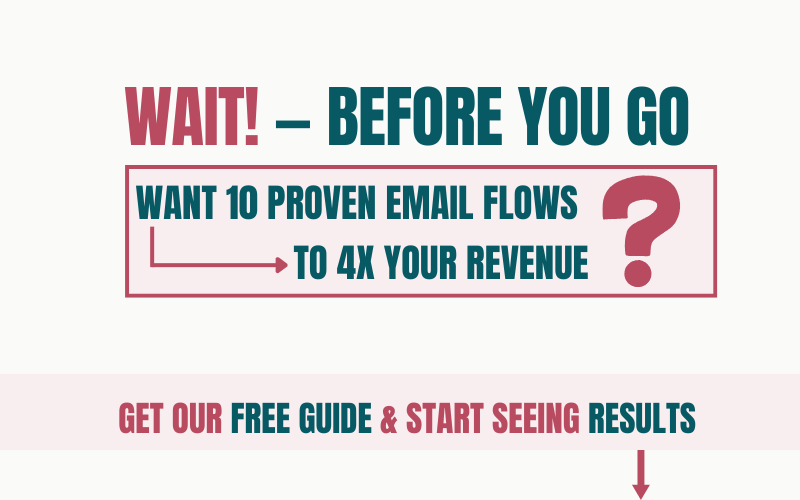Email marketing is one of the most powerful ways to grow an e-commerce business. The right email service provider (ESP) can help you automate campaigns, increase sales, and build lasting customer relationships.
But here’s the catch: Not all ESPs are created equal. Some offer powerful automation, while others shine in deliverability. Some are perfect for small businesses, while others are built for scaling brands. Picking the wrong one can mean lost revenue, wasted time, and frustrated customers.
So, which ESP should you go with? We’ve done the legwork and compared the top 10 ESPs for e-commerce, breaking down their features, pros, cons, and ideal use cases. Let’s dive in!
1. Klaviyo – Best for Advanced E-Commerce Marketing
Rating: 9.5/10
Klaviyo is built specifically for e-commerce businesses and integrates seamlessly with platforms like Shopify, WooCommerce, and BigCommerce. It offers advanced segmentation, powerful automation, and deep data insights to optimize campaigns.
✅ Pros: Advanced automation, excellent e-commerce integrations, great audience segmentation, great analytical reports
❌ Cons: Can be expensive for larger lists, cannot build landing pages internally.
2. Mailchimp – Best for Beginners
Rating: 9/10
Mailchimp is one of the most well-known ESPs, offering an easy-to-use interface and basic automation. While it’s great for beginners, it lacks advanced features for scaling.
✅ Pros: User-friendly, good templates, free plan available, fairly good audience segmentation, can build landing pages internally.
❌ Cons: Limited automation, pricing increases quickly as contacts grow.
3. ActiveCampaign – Best for Automation and Personalization
Rating: 8.5/10
ActiveCampaign is an all-in-one marketing automation platform with powerful email tools. It allows for deep personalization, dynamic content, and advanced automation workflows.
✅ Pros: Highly customizable, strong automation, CRM features.
❌ Cons: Steeper learning curve for beginners.
4. GHL (Go High Level) – Best for Agencies and Multi-Channel Marketing
Rating: 8/10
Go High Level is an all-in-one marketing platform designed for agencies but is also great for e-commerce brands. It includes email, SMS, CRM, and sales funnel features.
✅ Pros: Multi-channel marketing, built-in CRM, great for scaling.
❌ Cons: Not as user-friendly as some other ESPs, very limited audience segmentation, insufficient analytics tracking tools.
5. Omnisend – Best for Multi-Channel E-Commerce Marketing
Rating: 8/10
Omnisend is designed for e-commerce businesses, allowing email, SMS, and push notifications in one platform. It offers pre-built automation workflows for abandoned carts, welcome sequences, and more.
✅ Pros: Multi-channel marketing, great e-commerce integrations, average audience segmentation.
❌ Cons: Email design tools could be better.
6. Drip – Best for Small to Medium E-Commerce Brands
Rating: 7.5/10
Drip is a strong ESP with a focus on personalization and automation. It’s great for small to medium e-commerce stores looking to improve customer engagement.
✅ Pros: Good automation, strong e-commerce focus.
❌ Cons: Limited integrations compared to Klaviyo.
7. ConvertKit – Best for Content-Driven E-Commerce Brands
Rating: 7.5/10
ConvertKit is ideal for businesses that rely heavily on content marketing. It’s popular among creators, bloggers, and smaller e-commerce brands.
✅ Pros: Simple automation, great for selling digital products.
❌ Cons: Lacks advanced e-commerce automation, design interface can be better.
8. Sendinblue – Best Budget-Friendly Option
Rating: 7/10
Sendinblue is an affordable ESP that includes email marketing, SMS, and CRM tools. It’s a good choice for businesses on a budget that still want automation.
✅ Pros: Cost-effective, easy to use.
❌ Cons: Fewer e-commerce-focused features.
9. HubSpot – Best for Large-Scale E-Commerce Businesses
Rating: 7/10
HubSpot offers a robust email marketing tool within its larger CRM and marketing automation suite. It’s great for businesses that need deep analytics and customer tracking.
✅ Pros: Excellent CRM integration, strong analytics.
❌ Cons: Expensive for smaller businesses.
10. AWeber – Best for Simplicity and Reliability
Rating: 6.5/10
AWeber is one of the oldest ESPs and is known for its reliability. It’s best for small businesses that want a simple, no-frills email marketing tool.
✅ Pros: Easy to use, reliable.
❌ Cons: Lacks advanced automation features.
Final Thoughts
Choosing the right ESP depends on your business size, budget, and marketing goals. No matter which platform you choose, investing in email marketing is one of the smartest moves you can make for your e-commerce business.
Pro Tip: Before committing to an ESP, test their free trial to see if it fits your workflow. And remember—a good ESP is an investment, not an expense. Pick the right one, and it’ll pay for itself in revenue growth.
Now go make that inbox money!
And to stay updated with the latest trends and get some insider insights on email marketing, sign up to our newsletter. We assure you won’t regret it.


